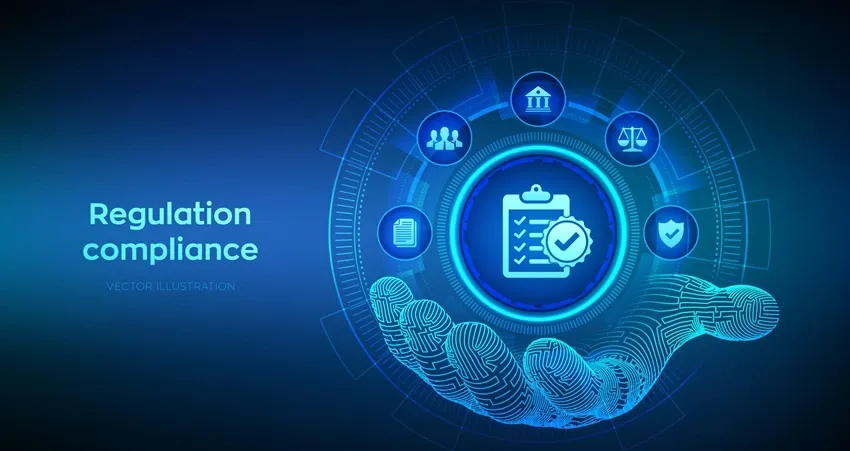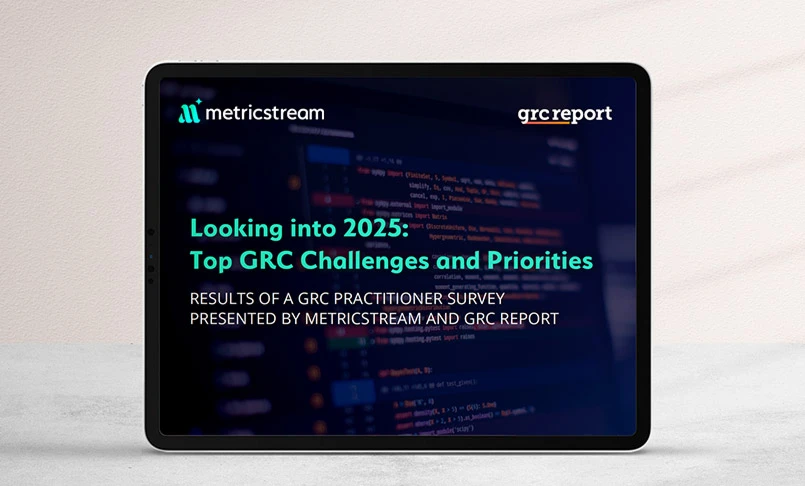Navigating GRC in Germany: 5 Must-Know Regulatory Updates
- GRC
- 04 September 25

Introduction
The pace of regulatory change in Germany and the greater DACH region (Germany, Austria, Switzerland) has never been more intense. For banks, insurers, asset managers, and emerging FinTechs, compliance now extends far beyond box-ticking. It demands a robust frameworks, new digital capabilities, and unprecedented transparency. The dynamic regulatory environment, shaped by a blend of local legislation and EU-driven initiatives is setting new standards for transparency, risk management, and compliance.
Regulatory frameworks are the backbone of a well-functioning financial system. In Germany, regulatory authorities are upping the ante to ensure stability, foster innovation, and safeguard consumers. Key trends in 2025 include the digitization of financial services, enhanced sustainable finance requirements, and a sharper focus on combating systemic risks like money laundering and cyber threats, all aimed at improving the financial market integrity and investor protection in Germany. As authorities respond to high-profile market failures and fast-evolving technology, the pressure to get compliance right has never been greater.
Key Regulatory Developments Shaping GRC in Germany in 2025
Read the below regulations to identify how financial institutions in the DACH region manage GRC (Governance, Risk, and Compliance) in Germany and see how these evolving rules are impacting business priorities and operational strategies.
Financial Market Integrity Strengthening Act (FISG)
The Financial Market Integrity Strengthening Act (Finanzmarktintegritätsstärkungsgesetz - FISG) is a crucial piece of legislation that came into force on July 1, 2021, largely in response to the Wirecard fraud scandal. Its primary goal is to restore and bolster confidence in the German financial market. FISG mandates that boards of directors must put robust internal control and risk management systems in place, specifically tailored to the company’s commercial activities and risk profile.
Key highlights:
- The FISG mandates the establishment of an audit committee within the supervisory boards of public interest entities to directly access information from ICS, RMS, and internal audit leaders.
- Listed entities must develop effective internal control systems (ICS) and risk management systems (RMS) - § Section 91 III AktG.
- Increased regulatory powers for BaFin (Federal Financial Supervisory Authority) in oversight and enforcement.
German Corporate Governance Codex (GCGC)
The German Corporate Governance Codex (Deutscher Corporate Governance Kodex) reflects a modern, holistic approach to corporate governance for publicly listed companies in Germany. The 2022 amendments, particularly Section A4, require organizations to treat risk responsibly and implement a Compliance Management System (CMS) within their internal control and risk frameworks. This framework facilitates an integrated GRC structure, aligning risk, compliance, and control into a unified architecture.
Key highlights:
- ‘Comply or explain’ - Companies must disclose any deviations from the code and explain them in their annual governance statements.
- Emphasizes transparency and accountability to stakeholders.
- Annual updates keep the Code aligned with international best practices.
EU Taxonomy Regulation (2019/2088)
With momentum building for sustainable finance and responsible corporate conduct, the EU Taxonomy Regulation has shifted the compliance landscape across Germany and the wider DACH region. It is a cornerstone of the EU's sustainable finance agenda and directly impacts financial institutions in Germany by creating new, complex disclosure and reporting obligations. Also known as the Sustainable Finance Disclosure Regulation (SFDR), it establishes harmonized transparency requirements for financial market participants and advisers regarding how they integrate environmental, social, and governance (ESG) factors into their investment decisions and financial advice.
Key highlights:
- Companies must demonstrate due diligence in value chains and show proactive risk identification and mitigation with regards to sustainability and responsible conduct.
- Direct ties to the EU Green Deal and Corporate Sustainability Reporting Directive (CSRD).
- As of 2025 (Directive 2025/794), all large limited liability companies in Germany must report on their sustainability alignment and taxonomy compliance impacting thousands of firms beyond just capital market-listed entities.
Early Risk Detection and the Age of Auditable Effectiveness IDW PS 340 n.F. is the revised auditing standard for risk early warning systems in German companies subject to statutory audits. In effect since January 2021, this standard pushes companies to document robust risk management frameworks that can identify, quantify, and aggregate existential risks.
Key highlights:
- Establishing a framework for identifying and assessing all risks threatening the company’s existence.
- Proving the risk management system’s effectiveness through audits and board-level oversight (“provable, auditable effectiveness”).
- Mandatory for all companies under statutory audit obligation, reinforcing risk foresight as a compliance necessity—not an afterthought.
BaFin Financial Reporting Enforcement in Germany:
BaFin (Bundesanstalt für Finanzdienstleistungsaufsicht), Germany’s Federal Financial Supervisory Authority, is solely responsible for the external examination of financial statements of publicly traded companies. Its enforcement framework aims to ensure the accuracy and legality of financial reports, thereby boosting investor trust and market integrity.
Key highlights:
- It requires financial institutions to establish robust, comprehensive risk management frameworks that cover all significant risks with clear monitoring and reporting.
- BaFin alone conducts financial reporting enforcement, replacing the previous two-stage process involving the Financial Reporting Enforcement Panel (FREP).
- FISG expanded BaFin’s powers to include compulsory examinations, extended information rights, search and seizure authorizations, and public disclosure of enforcement actions.
Emerging Trends: Beyond Compliance
The GRC market in Germany isn’t just ticking regulatory boxes, it’s embracing strategic transformation. A few of the notable trends include:
- Integrated Risk & Resilience Management: Firms are evolving from siloed compliance and risk functions toward unified, proactive risk management for resilience in complex markets.
- ESG and Sustainability as Core GRC Drivers: Companies must look beyond reporting; they need to align business models with sustainable outcomes, leveraging the EU Taxonomy as a strategic tool.
- Digitalization and RegTech: Tools that automate compliance and risk analysis are in high demand, streamlining processes while elevating data quality and reliability.
How Can MetricStream Help
Using MetricStream’s AI-first Compliance Management, financial institutions can:
- Simplify compliance BaFIN, FINMA, and FMA regulations through automated workflows and a single source of compliance truth
- Improve efficiency by prioritizing compliance efforts and resources based on risk insights
- Avoid regulatory violations with automated compliance monitoring, streamlined control assessments, and clear audit trails
- Automate regulatory update tracking by curating relevant alerts and enabling quick impact assessment for internal stakeholders with Regulatory Change Management
- Ensure continuous compliance with real-time regulatory change monitoring and automated impact assessments
- Build a culture of compliance with structured policy creation, distribution, and attestation processes
- Develop an AI-first compliance program making compliance smarter, leaner, and more strategic
Learn how to confidently navigate the DACH financial landscape and drive sustainable success.









